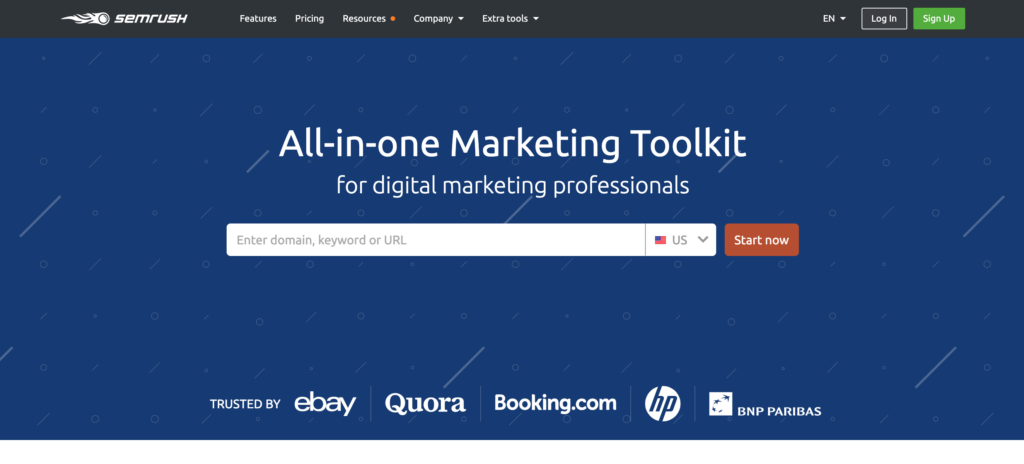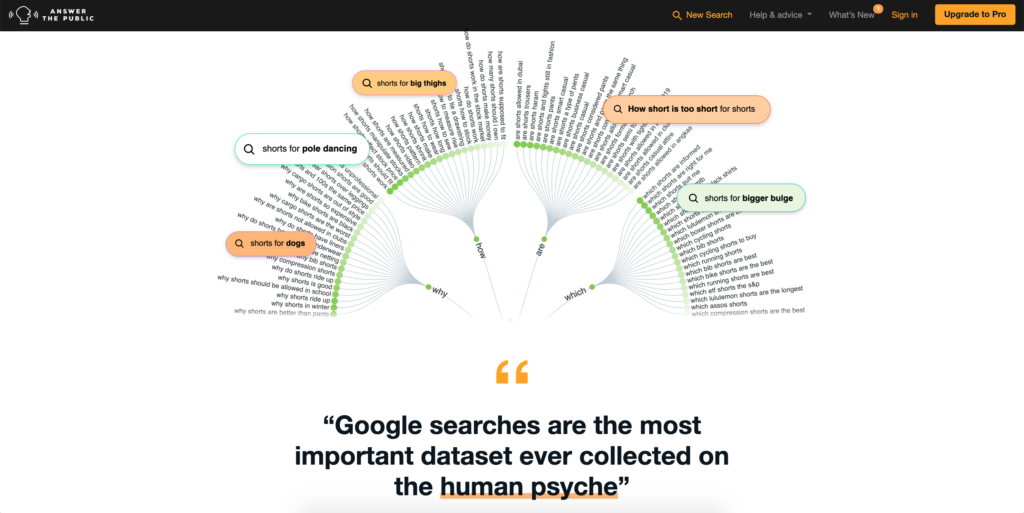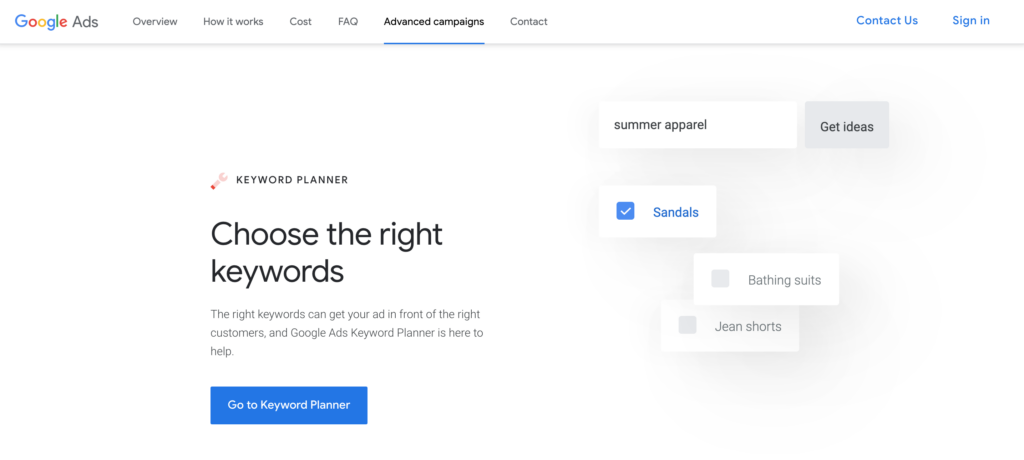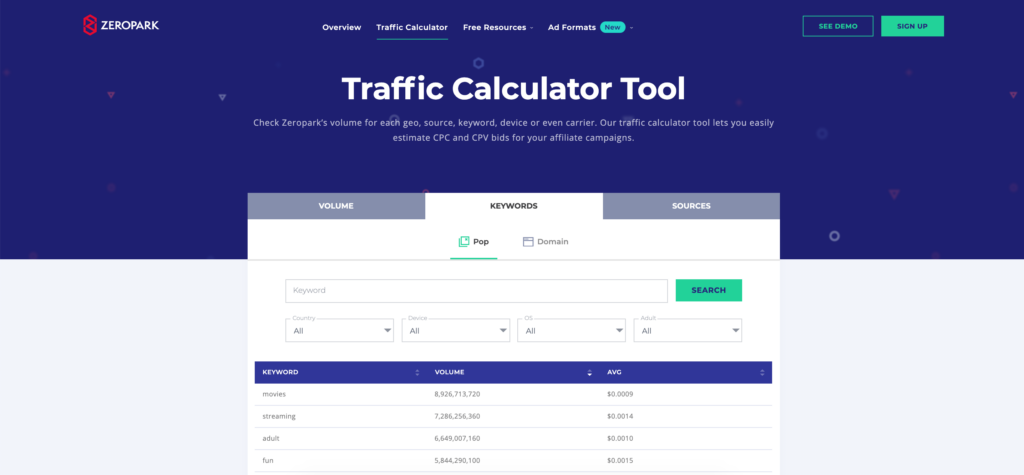Tapping into your audience’s demand is the key to success for any kind of business. And if you’re an affiliate marketer, it’s never been easier to do just that. All you’ve got to do to uncover the mystery is to use one of the free keyword research tools and check what your audience wants!
Why bother, though? Why is the thorough keyword research so important for your business and how to do that quickly, efficiently, and effectively?
Read on to find out!
Why is keyword research important for affiliate marketers?
It’s important to note that keyword research does not only mean ranking in SERPs or improving your website’s overall rating. Although SEO practices are mostly used for getting your website noticed, keyword research can give you much more information.
Keyword research can tell us a lot about our potential customers, their preferences, buying habits, and current demand. And isn’t that every affiliate marketer’s dream come true to promote exactly what the people want to buy?
That’s why as an affiliate marketer, you should realize that finding the right keywords may also be beneficial for your PPV/PPC campaigns. And we don’t mean those run with keyword targeting only. Finding keywords that your potential customers are interested in is actually a universal strategy that can be implemented for ALL KINDS OF affiliate marketing campaigns.
So, if you’re interested in the SEO perspective you can take a look at Ahrefs’ take on how to do keyword research for SEO. But if you’re looking for the affiliate marketing perspective, you’ve found yourself in the right place.
How to do keyword research for your affiliate marketing campaigns?
If you’re an affiliate marketer looking to promote products via your own high-ranking website, then the usual SEO practices should be put in place. These mostly include points presented below, though we’ll leave the exact strategy of the best SEO website optimization for another time.
SEO practices for affiliate website ranking
- Identifying the advertising/product’s niche
- Learning the user intent
- Competition research
- Listing seed keywords
- Listing long-tail keywords
- Placing keywords in specific places across your website
- Monitoring and scoring a particular keyword’s performance
- Monitoring website SERP ranking
SEO GLOSSARYSEED KEYWORD: typically short, one or two word phrases with no modifiers, e.g.: bag. They’re usually the starting point for a more precise keyword listing, leading to creating long-tail keywords. LONG-TAIL KEYWORDS: multiple words phrases that serve as more specific keywords. These can be actual search queries people put into search engines, e.g.: leather bags where to buy. SERP a.k.a Search Engine Results Pages: websites displayed by search engines in response to a query searched by users, with top websites displayed as top results. |
But if you’re an affiliate marketer looking to run a PPV/PPC campaign, who also wants to understand current trends and tap into the customer demand, then your keyword research is going to be a little different (though still including a lot of the elements mentioned above).
Here’s what you’ve got to do!
Keyword research tips for affiliate marketers
1. Find an affiliate offer
As with every advertising campaign, you need to have something to promote, to begin with. Now, depending on if you’re hell-bent on promoting a specific product, found a winning offer already, or you’re only considering your options, different steps would be recommended.
✔︎ Yes, I’ve already got an offer!
Wonderful! That means you’ve done a big chunk of the work already and can proceed to researching seed keywords relating to the product of your choice, for example dating.
✘ No, I’m still looking for an offer!
Great! That means you’re able to perform general research first, see what’s all the hype about right now, and then try to find a matching offer. Start with checking Google Trends for top rankings of the month. If people in certain countries go crazy about iPhone XYZ, UEFA finals, or simply waterproof smartwatches, then all that’s left is to pick your niche and look for a suitable offer!
2. Perform a seed keyword research
Next, whether you’re already 100% set on an offer, or not quite yet, you can proceed to perform your seed keyword research. Again, these are the simple, one, or two-word phrases that will help you narrow down the scope of your interest and act as a kick-off point for identifying more specific keywords.
If you’re thinking about going for dating, football, or electronics — search for different variations or closely-related terms like dating apps, sports betting, iPhone XYZ, Samsung 123, smartwatch, etc. Simply put, search for terms or items people interested in the first set of keywords would also be interested in.
3. Identify your affiliate marketing niche
Only after gaining insights into what’s currently trending, or double-checking how your chosen offer may fit into the current market, decide on your advertising niche — meaning the angle you’ll use to promote a particular product. Decide whether you’ll be talking to people looking for one-time deals, gear geeks, tech-savvy clients, or those hunting bargains.
4. Perform a long-tail keyword research
Identifying top long-tail keywords for your product/niche is the moment you get insight into your customers’ heads. This is because long-tail keywords are often the exact search queries that people use, or terms very close to the actual searches. For example:
- Dating apps for introverts
- Sports betting services UK
- iPhone XYZ how to get it for free
These are all long-tail keywords that give you way more information about your potential target audience than keywords like dating, sports betting, or iPhone XYZ.
5. Use your keyword research for your PPV/PPC campaigns.
Now it’s time to put the theory into practice and use the gathered intel while creating your affiliate marketing campaigns. Apart from the help choosing offers and products that people are truly interested in as well as identifying the niche and marketing angle, the performed keyword research also gives you the exact wording you should use to tap into the customer demand.
Have a look at the long-tail keywords we’ve already identified and how these can be turned into a perfect ad copy:

These are naturally just a few examples, but depending on the product and related keywords, advertisers can build their whole ad copy strategy around terms that the keyword research brought.
Adding phrases that people actually look for to your ad creatives or landing pages, especially if proven as top ranking, can help with both user-engagement and maximizing chances for conversions. Remember that the right combination of ad copy and images can be a make-or-break element for a user choosing to click on your ad rather than tens of other ads displayed.
6. Use selected keywords for precise targeting
Keyword research can also be extremely useful for advertisers who decide to run their PPV/PPC campaigns with keyword targeting. In that case, campaigns can use either a broad or exact type of keywords. Regardless of the type, though, advertisers need to provide a list of desired keywords first. And what’s a better way to find what’s currently trending than using the tips and tricks discussed in this article? For those interested in how exactly keyword campaigns work, here’s something additional reading, too!
Learn How To Run Keyword Campaigns That Convert!

7. Monitor, adjust, and optimize your keywords for the best performance!
As with every element of your affiliate marketing campaigns, keywords also need to be optimized. Whether used for your ad copy or directly as targeting elements, monitor which ones bring the best results, and optimize accordingly. The optimization process can be done in multiple ways, but tracking your metrics, analyzing any changes to ads performance, and using auto-optimization tools where possible, are definitely things worth considering.
Useful keyword research tools for affiliate marketers
Having listed all these useful keyword research tips, it’s time to move on to keyword research tools. And please be aware that not to take advantage of the multiple research tools available out there would be a true crime. That’s why, to prevent you from committing such mistakes, we’ve compiled a list of keyword research tools every smart affiliate marketer should always have a look at while preparing to launch that money-making ad campaign!
Ubersuggest

Ubersuggest is a free keyword research tool built by Neil Patel, a digital marketing guru. It allows you to perform SEO analysis, spy on your competitor’s rankings, backlinks, and keywords, but also view what’s currently trending in social media and top keyword rankings. It’s especially recommended for discovering buyer intent and bringing your content closer to people.
Semrush

Semrush allows you to perform any keyword research or domain keyword analysis you’d like, quickly and effectively. It’s a well-known tool among the SEO community and a top choice for many affiliate marketers, too. Semrush offers features that help marketers improve their social media management, on-page SEO, keyword research, link building, SERP ranking, market analysis as well as PPC keyword research.
Answer the Public

Answer the Public is a free tool allowing any marketers to “get instant, raw search insights, direct from the minds of your customers”. Isn’t that what we’ve been looking for all along?
This keyword tool uses autosuggestions coming from the Google search engine to build both simple and complex visualizations of search queries mapping. Enter any word or phrase you’d like and you’ll instantly get insights on related queries, often those you wouldn’t have come up with yourself.
Just try putting in a suggested chocolate term and see how much intel Answer the Public gives you within a fraction of a second.
Google Trends

Google Trends allows for a quick and global analysis of the most popular terms at a given time. It gives affiliate advertisers a unique insight into what’s currently trending while helping them to predict the next search-peak for a given term based on historical data.
Google Keyword Planner

Google keyword planner is a useful tool for building your top keyword list, especially for PPV/PPC campaigns. It helps advertisers generate keyword ideas and also estimates average prices (within the Google Ads feature) for your marketing strategy. Still, might be quite useful for affiliate marketers of all kinds.
Zeropark Traffic Calculator

Zeropark Traffic Calculator is a handy tool for checking average bids and available impressions per given campaign setup in Zeropark. You can calculate the traffic volume and the bid based on variables like ad format, device, OS, GEO, carrier, keyword, source. All estimations are based on historical data.
The tool helps you decide what keywords to target, how much to bid in order to win ad impressions, and how much traffic to expect with chosen keywords.
Conclusions
Affiliate marketing is one of those industries that keeps making advertisers’ lives easier every single day. New tools, step-by-step guides, community support, tips and tricks, DOs & DON’Ts… the list is a long one already, and it’s only getting longer.
Following keyword research tips and using recommended tools help affiliates make more educated decisions, which are key elements of making your affiliate business a successful one. Proper keyword research is surely worth your attention — as every affiliate marketing strategy that helps you maximize profits while minimizing risks.
Have you done your keyword research yet?
Now Launch Your Campaign Using Zeropark
Kinga Gawron


